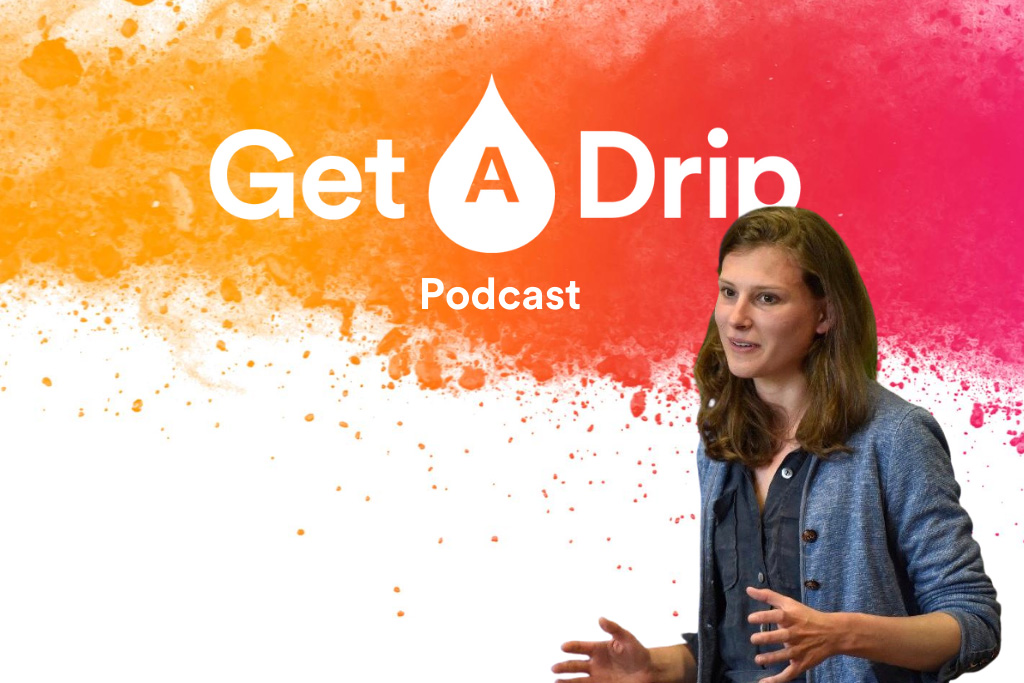
Listen to the Podcast episode here!
Anna Louisa, you are the CEO of Impli. Tell us a little bit about what you guys do because it is extremely interesting and quite different!
Absolutely. So Impli is an implantable company and we want to make people’s lives safer and more convenient with implants. We launched our first product in the beginning of 2019, and it’s calling to Implicaspian and it allows you to hold your medical information with you at all times through a small rice, sized implant that sits right underneath the skin and can be interfaced with any smartphone that has NFC capability.
We’re a London based company, but we are working on products that go into the sensing mechanisms and so that can sense your glucose levels or temperature or pulse and but also payment applications. Those are all interesting factors of the implantable space which is a small market, small and growing market.
What are the kind of reactions that you get from people when you tell them what you guys do?
So, I think we get the complete enthusiasts that want to try it right now; those that are very technologically advanced and understand and likes technology. And we have the complete opposite which is very much scepticism or ‘is this really necessary?’ or ‘what are the benefits?’ or doesn’t doesn’t really like it at all. So, and that’s kind of the scenario that we’re facing. COVID has somewhat changed the perception of people into a more kind of technologically advanced mind.
Why do you think people post-COVID have a different reaction to it and kind of coming around to the idea?
I think COVID has made a lot of people more aware of their health and the value of their health. I also think that it’s made people aware that their data is really important, so Implicaspian obviously keeps your most valuable data. When you’re stuck somewhere else and you get COVID, what are you going to do? You don’t have your documents with you. Implantable devices can have a huge impact on remote healthcare. And they can have a huge impact on digital diagnostics.
What kinds of people seem to be the most receptive to it? Who are your earliest adopters?
Early adopters are particularly people who love technology, who know the technology and want to use the technology for their own purposes. One of our customers, Alex, has used his implant to link all of his lighting system at home. We also see a big trend in early adopters with people who have underlying health care conditions. So another customer, Magdalena for example, who got her implant, has type one diabetes. There are many people that we know that have had bicycle accidents that would like those implants. So I think there’ll be a mix between early adopters from the technological space and early adopters from the health space who want to have that data with them at all times.
Does it hurt?!
We get that question quite a bit quite a lot actually. Implantables sit underneath the skin which means they never actually go into your muscle tissue, which means that you don’t hit as many nerves.
It’s kind of like a bee sting or the scratch of a cat! It takes about two minutes to get the procedure done, it takes two days to heal over and then you’re ready to use it. The benefits definitely outweigh any pain.
What does the future hold for Impli?
In terms of the near future, we’re working with Get A Drip, which is really amazing, on delivering our devices and on building a very secure distribution so that we know that our devices are safely administered and held.
At the same time, we’re definitely going down the route of sensors, we’re working on visibility studies and temperature sensors and pulse sensors, and then biosensors, so we can measure more and do more things and add more value to our customers.
We are launching very soon. So we’re really excited to jump into our first products to the masses and to also understand what the market does with this and also understand how people will start using this technology.